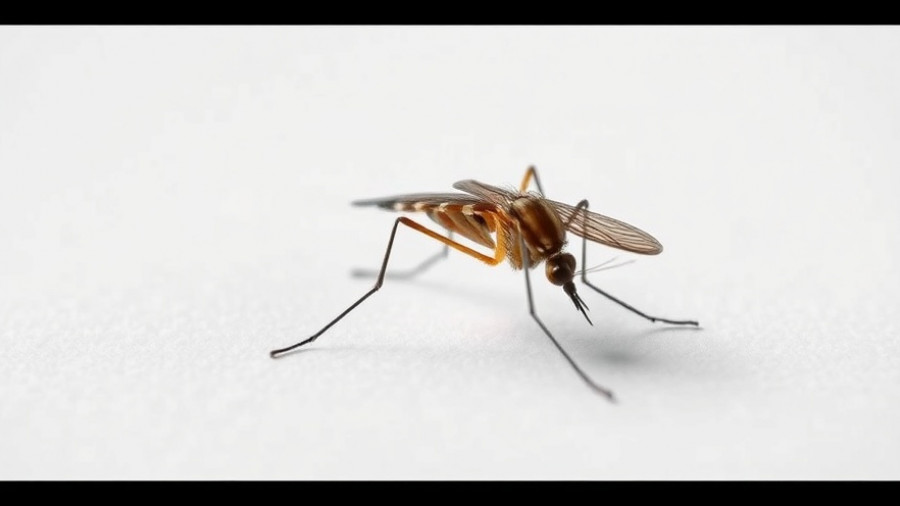
The Arrival of Mosquitoes in Iceland: A Historic Shift
For the first time in recorded history, mosquitoes have been discovered in Iceland, a destination once celebrated for its lack of these pesky insects. This unprecedented finding, which occurred in October 2025, has major implications for the island's ecosystem and highlights the direct impact of climate change on biodiversity.
Why Mosquitoes Matter: The Ecosystem Perspective
While you might think of mosquitoes as mere nuisances, they play a critical role in ecosystems as both pollinators and prey. However, their arrival also signifies a potential increase in disease vectors in previously mosquito-free locales. In a warming world, species that bring diseases like Zika and malaria are expanding their habitats, which poses new risks to human health, especially in regions not accustomed to these threats.
Climate Change: The Catalyst for Change
The rapid warming of the Arctic, including Iceland, is rewriting the rules for life in these regions. Recent studies indicate that Iceland is warming at a rate approximately four times faster than the global average. This climate change has created circumstances in which mosquitoes, specifically the Culiseta annulata species, can now thrive. Previously, the harsh winters and climatic instability made survival for mosquito larvae exceedingly difficult, but as temperatures climb, risks associated with their presence loom larger.
From Unique to Usual: Iceland’s Transition
Historically, Iceland was one of only two places on Earth that remained free of mosquitoes, with Antarctica as the other. Its cool temperatures and geographical isolation had acted as natural barriers. However, the increasing global temperatures and changes in the environment mean that places once inhospitable may soon be welcoming a variety of species previously deemed impossible. This trend is evident as researchers have observed a host of new insect species entering Iceland—over 200 new varieties that have adapted to the shifting climate.
Insights from Scientists: Predictions for the Future
Experts are expressing a mix of alarm and resignation regarding the situation. Associate Professor Björn Hjaltason, an entomologist involved in the discovery, commented on the situation, saying, "The arrival of mosquitoes is not unexpected; we’ve seen the early signals of climate change for years. The conditions are right for many species to venture farther north.” There are worries that diseases spread by mosquitoes could pose more severe public health challenges in the future.
The Bigger Picture: Impacts on Biodiversity and Human Health
The arrival of the Culiseta annulata may be a sign of the further establishment of tropical and subtropical species in the northern hemisphere. This change could disrupt local ecosystems that have evolved without such competitors. The potential increase in disease-threatening mosquitoes is not isolated to just Iceland; similar patterns are observed across Europe and North America, raising global awareness around the need for serious climate action.
Final Thoughts on Our Changing World
With the discovery of mosquitoes in Iceland, the need to understand and mitigate climate change impacts becomes even more acute. Every new species that establishes itself in a region brings both opportunities and challenges, and for Iceland, the challenge might outweigh the benefits. As we monitor these changes, individual actions toward sustainability become more critical. It's a reminder of how interconnected our world truly is.
Let's all take action to make a difference. Consider adopting eco-friendly practices in your daily life to help combat climate change and protect our unique ecosystems. Together, we can create a healthier planet for future generations.
 Add Row
Add Row  Add
Add 



Write A Comment